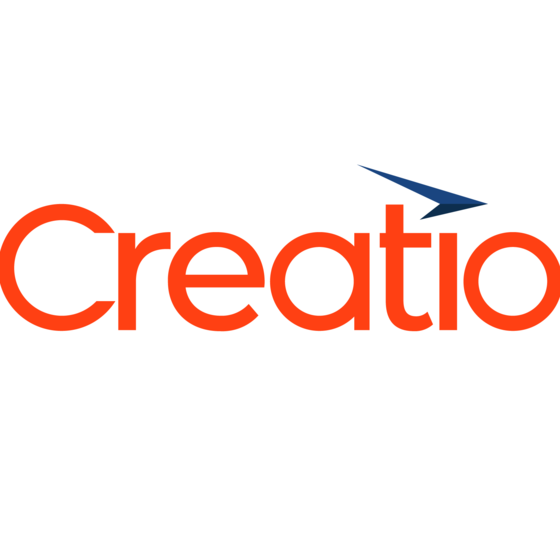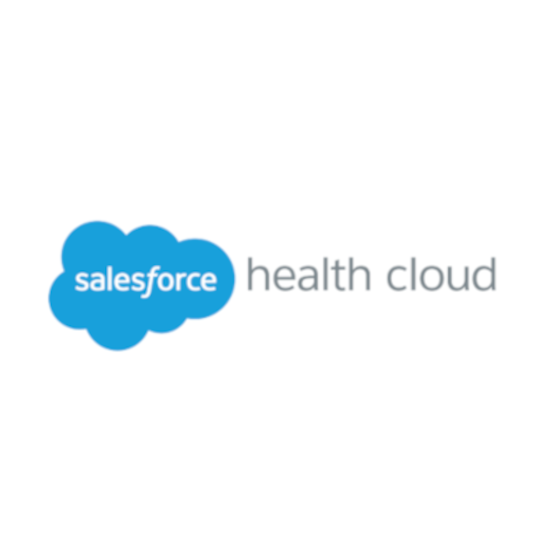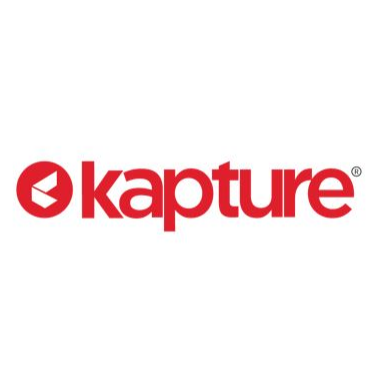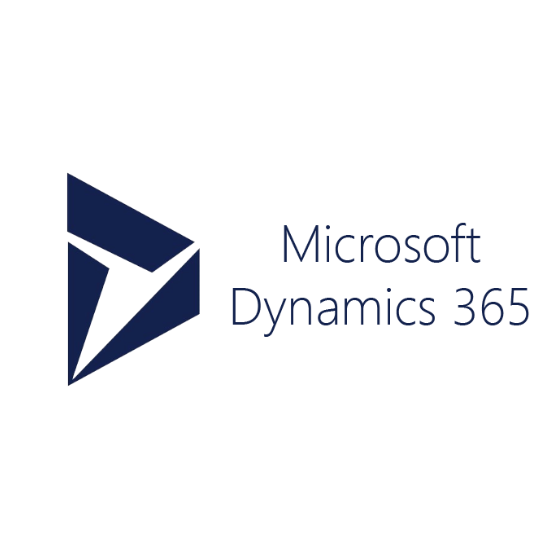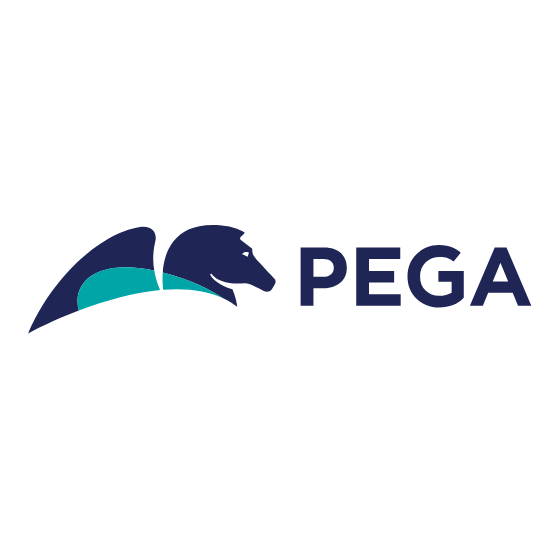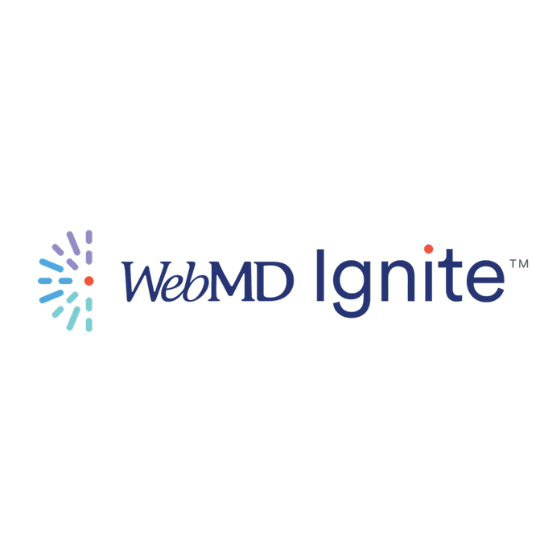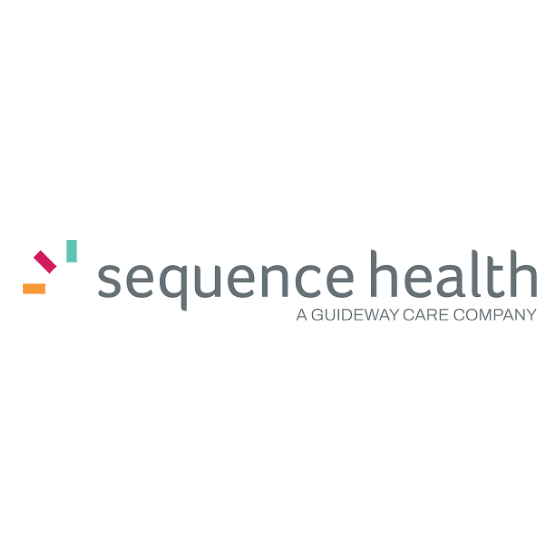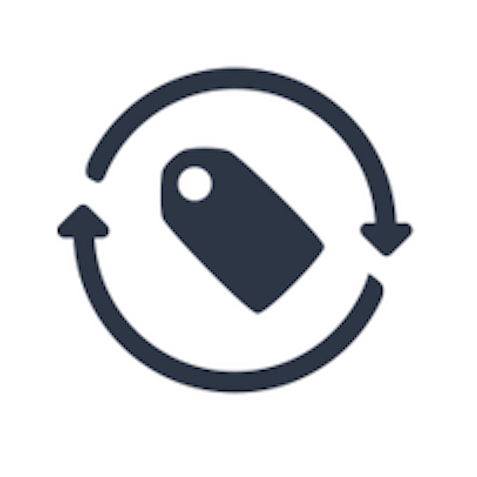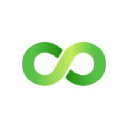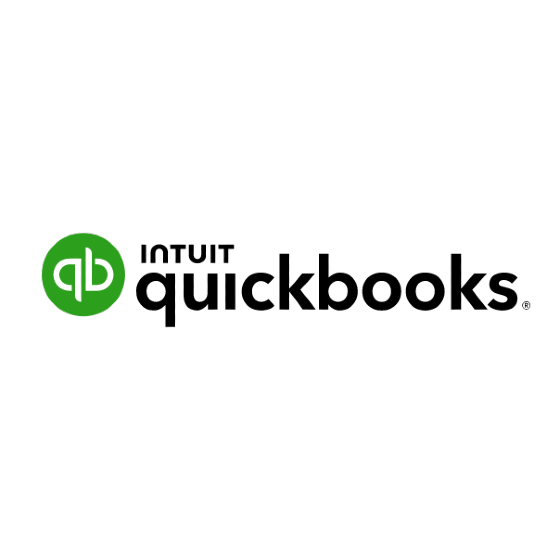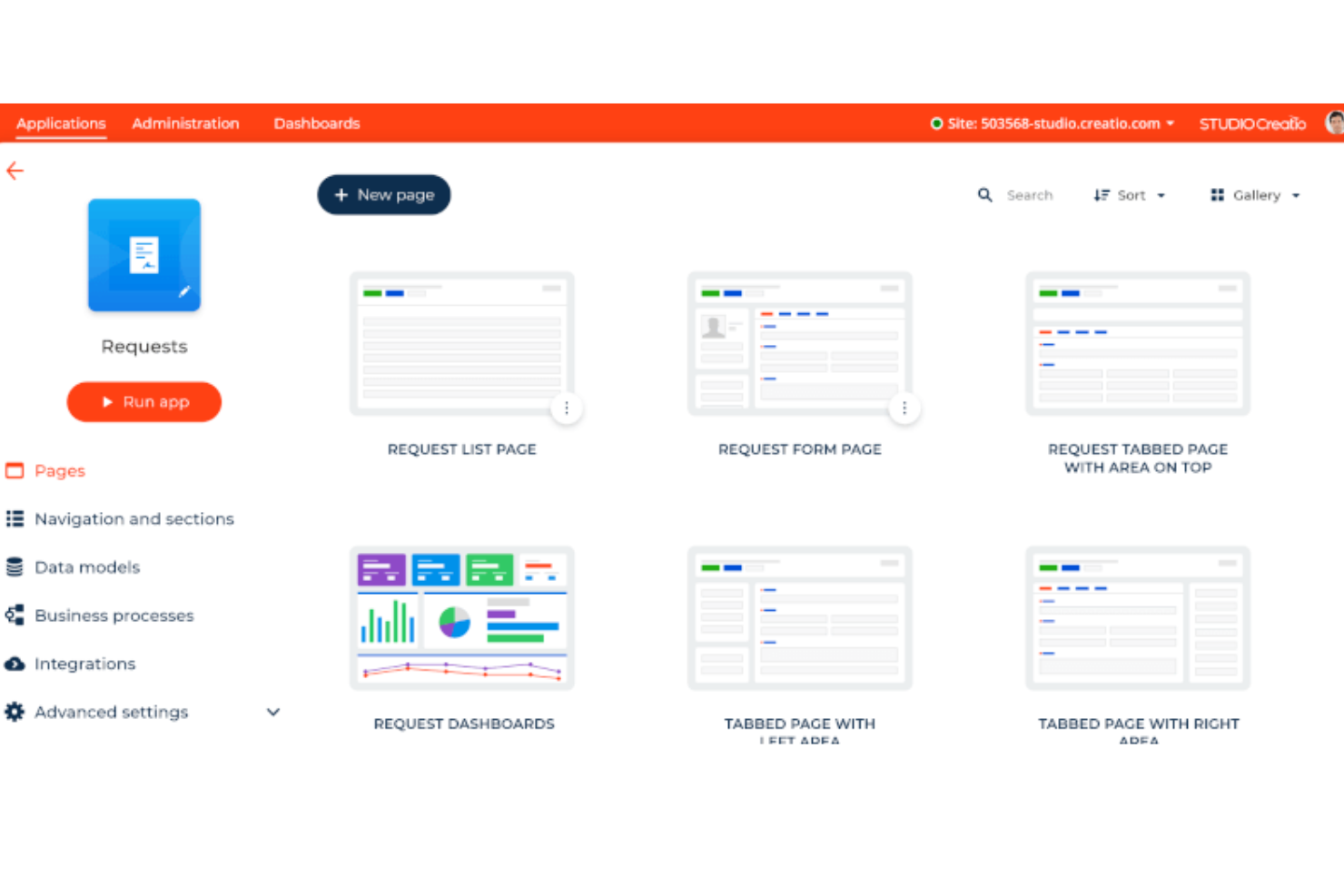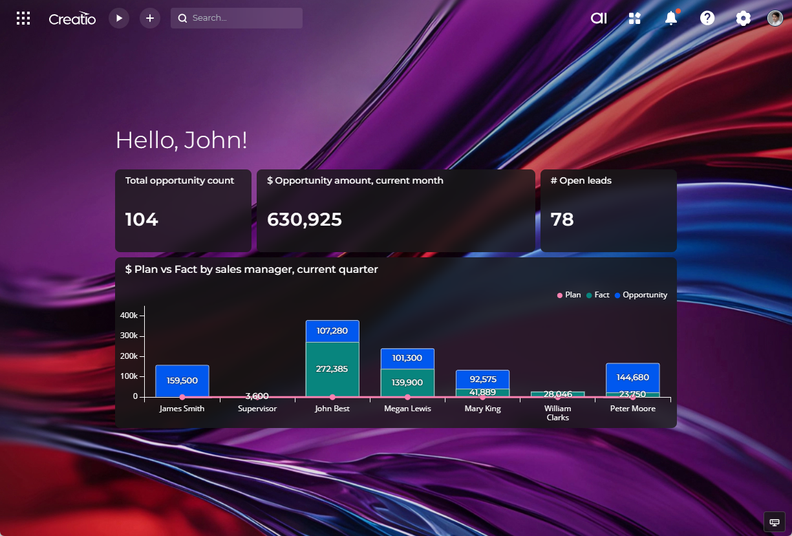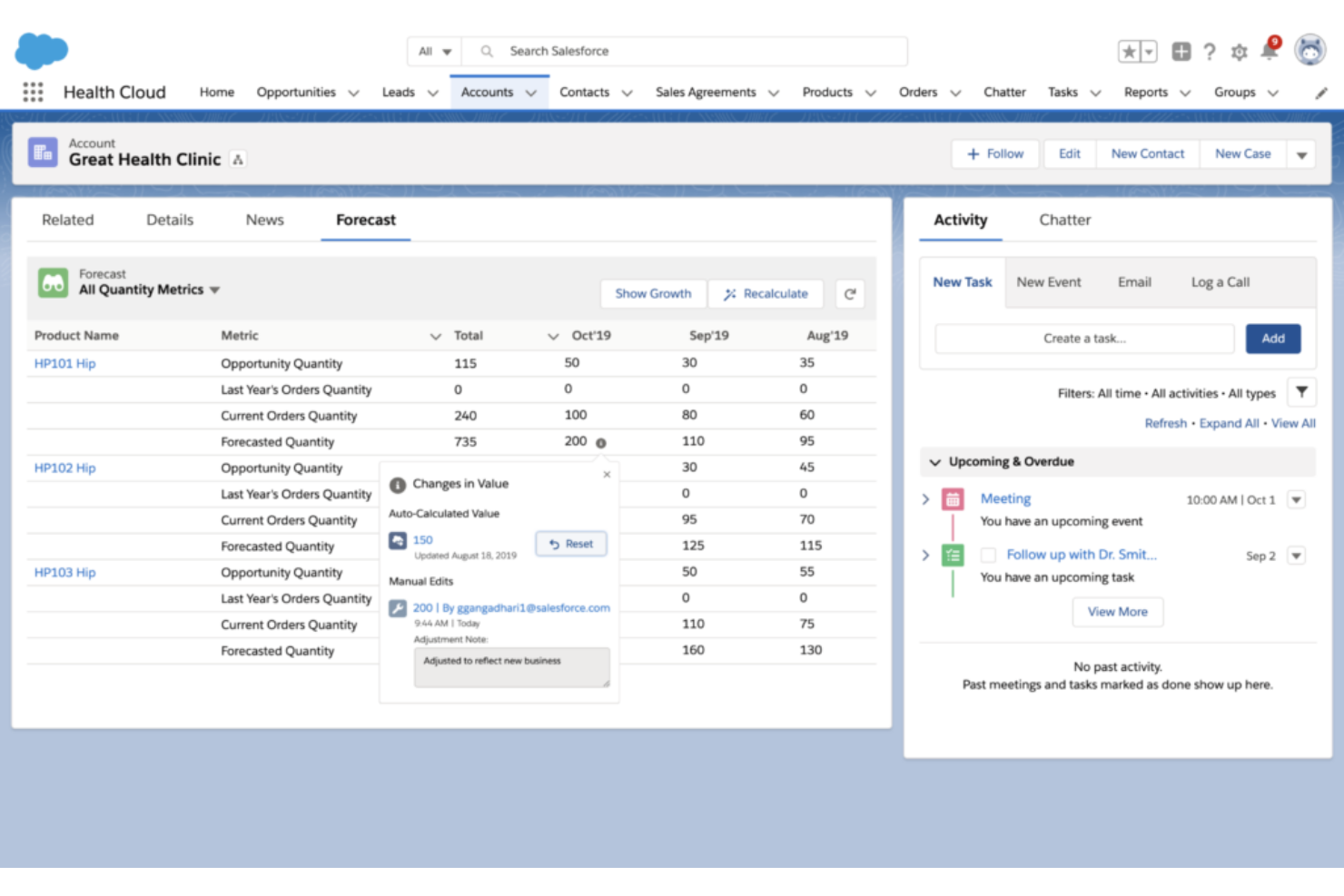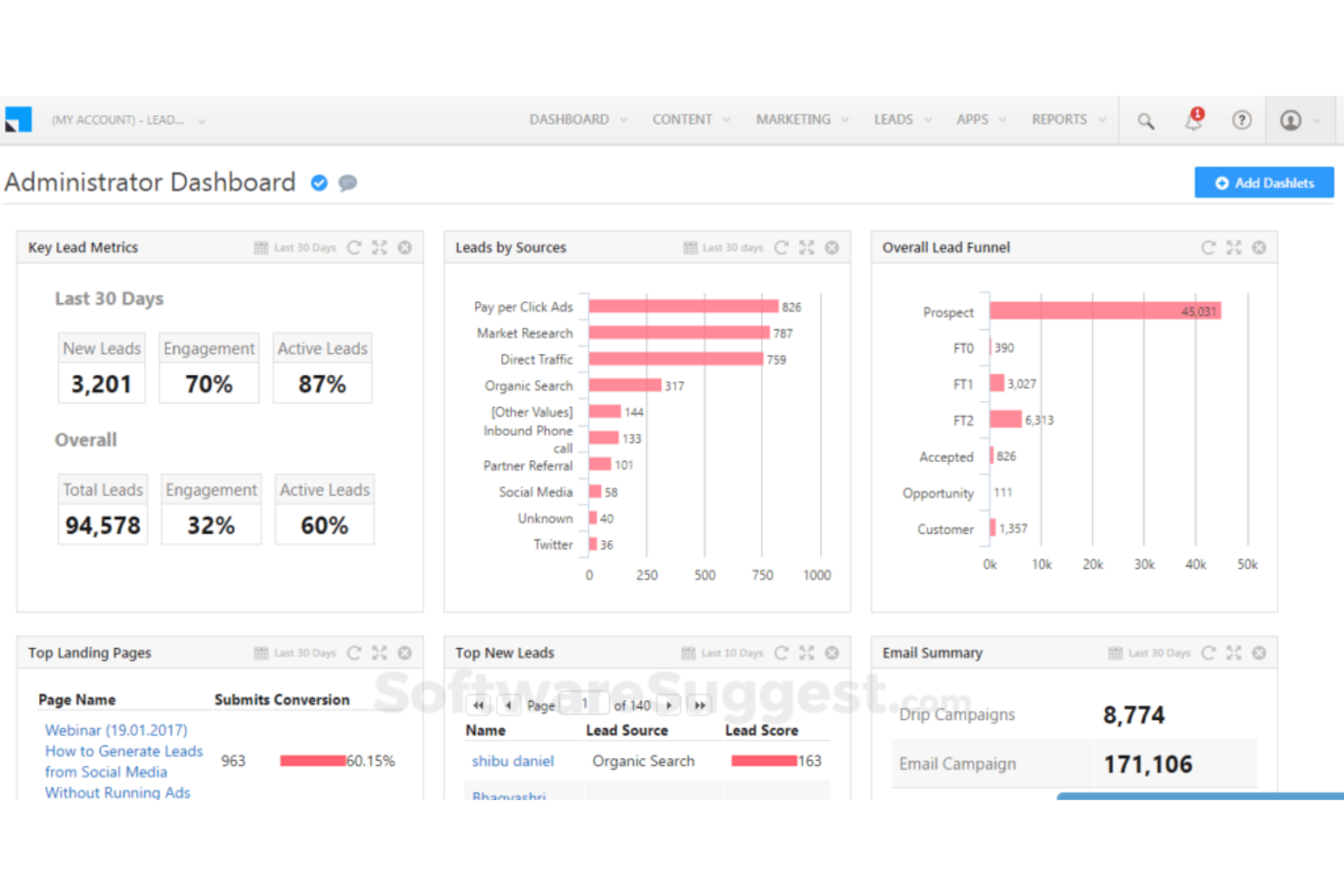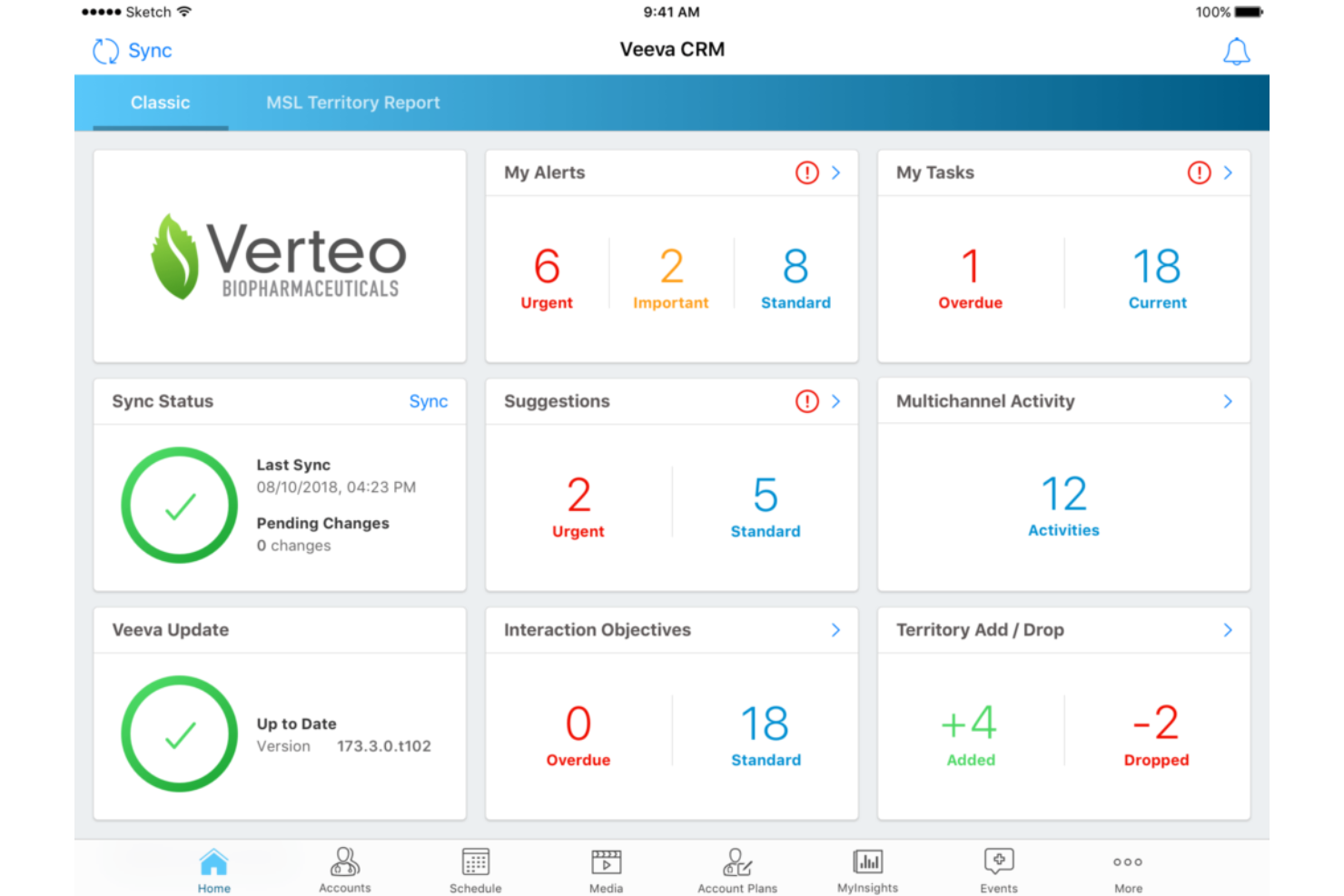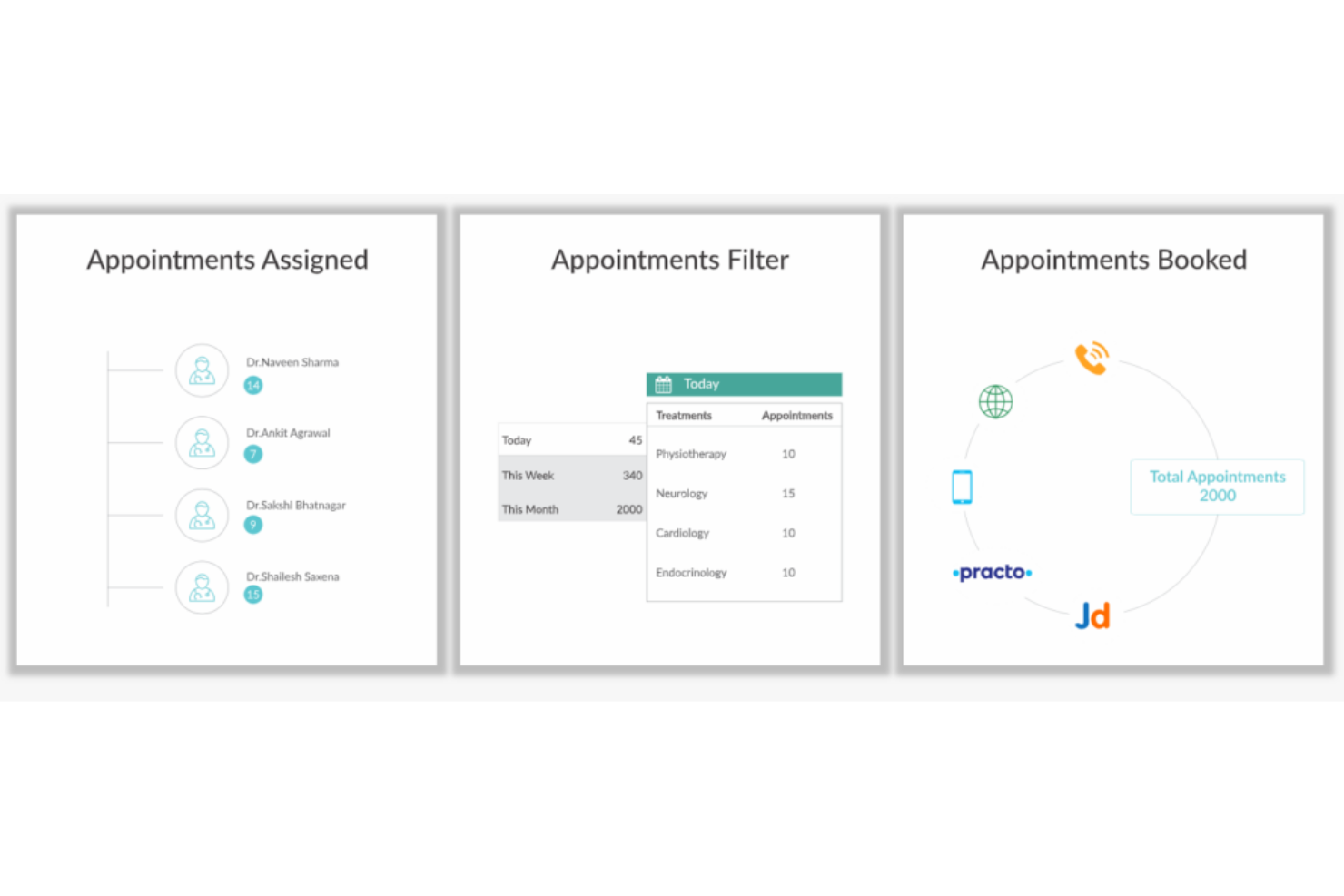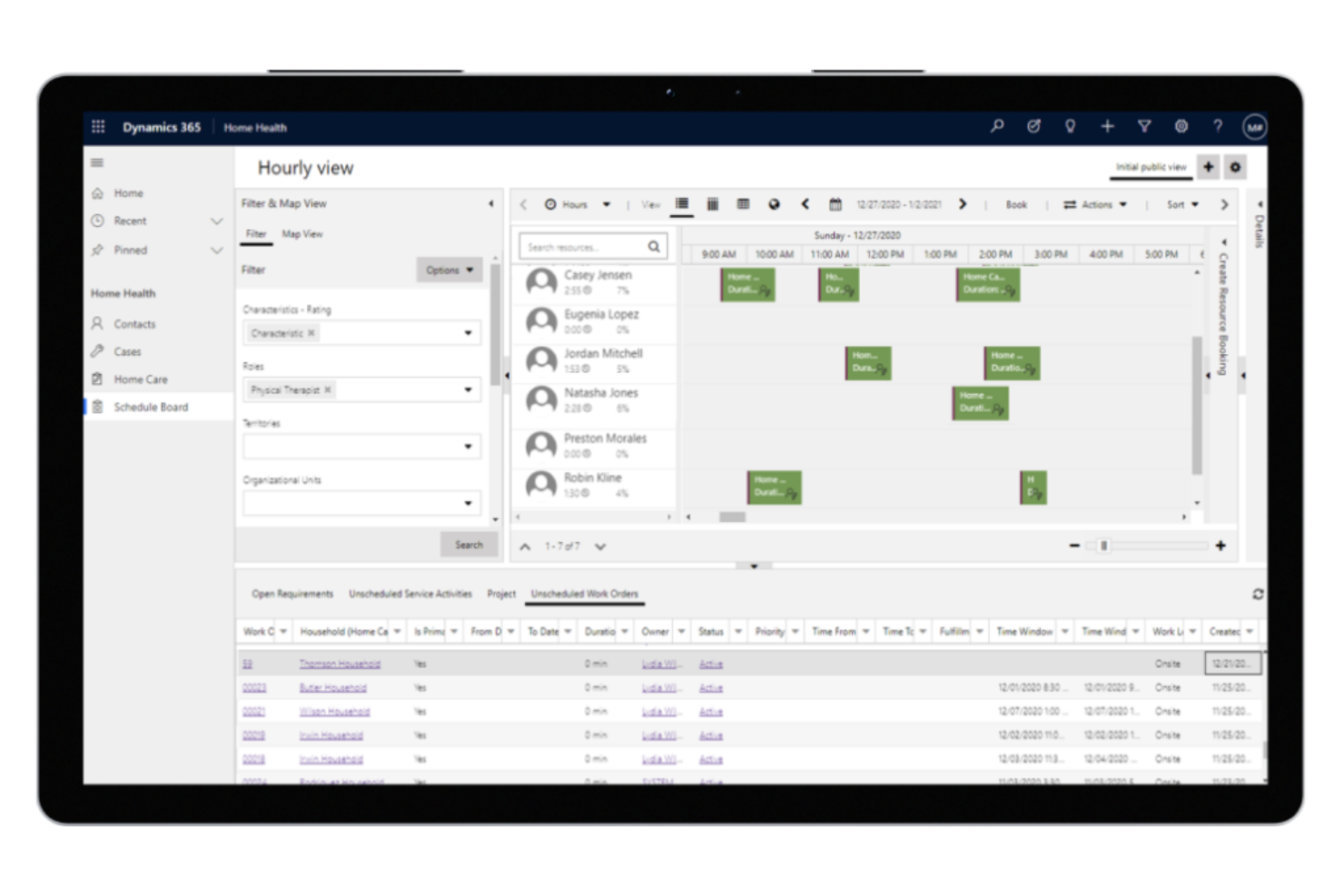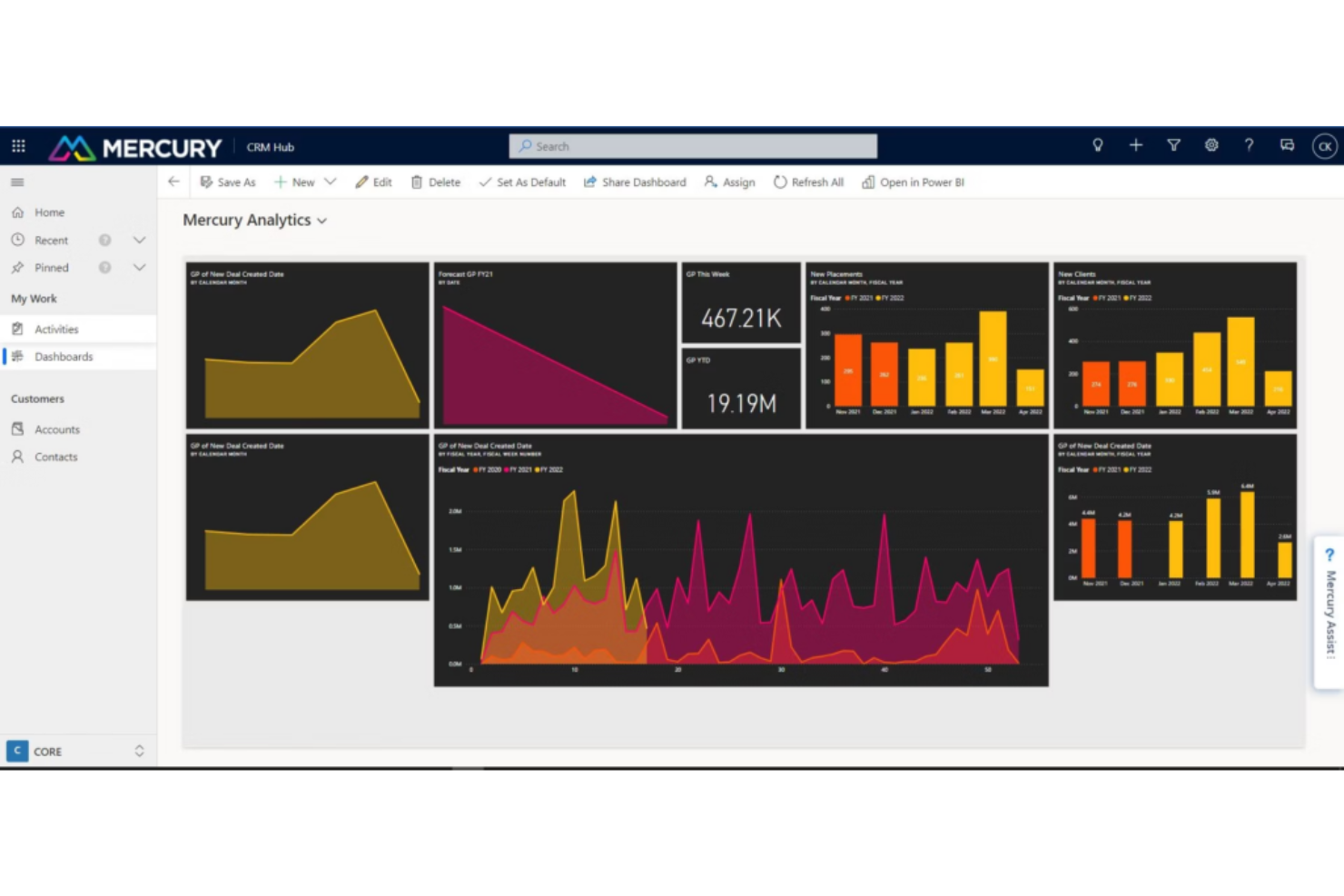10 Best Healthcare CRM Software Shortlist
Here's my pick of the 10 best software from the 18 tools reviewed.
With so many different healthcare CRM software available, figuring out which is right for you is tough. You know you want to provide more personalized and efficient patient care but need to figure out which tool is best. I've got you! In this post I'll help make your choice easy, sharing my personal experiences using dozens of different healthcare CRM tools with various teams and patients, with my picks of the best healthcare CRM software.
Why Trust Our Software Reviews
Best Healthcare CRM Software Summary
This comparison chart summarizes pricing details for my top healthcare CRM software selections to help you find the best one for your budget and business needs.
| Tool | Best For | Trial Info | Price | ||
|---|---|---|---|---|---|
| 1 | Best for no-code workflow automation | 14-day free trial | From $25/user/month | Website | |
| 2 | Best for lowering operational costs and driving efficiency | Not available | From $300/user/month. | Website | |
| 3 | Best for marketing automation to engage with patients | 15-day free trial | From $400/user/month (billed annually) | Website | |
| 4 | Best for animal health and veterinary organizations | Not available | Pricing upon request | Website | |
| 5 | Best for auto-assigning doctor’s appointments | Free demo available | From $19/user/month | Website | |
| 6 | Best for predicting risk to improve patient outcomes | 30-day free trial available | From $80/user/month | Website | |
| 7 | Best for delivering patient-centric experiences | Free trial available | From $29/user/month | Website | |
| 8 | Best for automation to reduce errors | 30-day free trial | Pricing upon request | Website | |
| 9 | Best for integrating with all your essential data sources | Free demo available | Pricing upon request | Website | |
| 10 | Best for providing solutions to specific healthcare operations | Free trial available | Pricing upon request | Website |
-

Prisync
Visit WebsiteThis is an aggregated rating for this tool including ratings from Crozdesk users and ratings from other sites.4.7 -

Expedite Commerce
Visit Website -

QuickBooks Online
Visit WebsiteThis is an aggregated rating for this tool including ratings from Crozdesk users and ratings from other sites.4
Best Healthcare CRM Software Review
Below are my detailed summaries of the best healthcare CRM software that made it onto my shortlist. My reviews offer a detailed look at the key features, pros & cons, integrations, and ideal use cases of each tool to help you find the best one for you.
CRM Creatio is a powerful customer relationship management platform designed to streamline and enhance various client-related processes. Built on a no-code platform, CRM Creatio enables users to create and customize applications without any coding expertise. This makes it particularly suitable for organizations seeking to implement tailored solutions quickly and efficiently.
Why I picked CRM Creatio: In the healthcare industry, where managing patient relationships and streamlining administrative processes are crucial, CRM Creatio excels by providing tools that automate complex workflows. Features such as 360-degree patient views, automated appointment scheduling, and real-time patient data analytics help healthcare providers deliver personalized care while improving operational efficiency. All of these features are customizable with its no-code platform.
CRM Creatio Standout Features and Integrations
Standout features include AI-driven lead scoring, multi-channel marketing campaigns, sales pipeline management, customer service automation, process management, business process modeling, case management, service level agreement (SLA) management, contact center automation, mobile access, and real-time performance metrics.
Integrations include Microsoft Office 365, Google Workspace, LinkedIn, Mailchimp, Zapier, DocuSign, Twilio, Stripe, QuickBooks, Jira, Slack, and more.
Pros and cons
Pros:
- Highly customizable platform
- Automated reminders to follow up with patients
- Multilingual platform capabilities
Cons:
- The reporting and analytics capabilities could be more interactive
- Learning curve for those unfamiliar with no-code development
New Product Updates from Creatio CRM
CRM Creatio Delivers Major AI, Mobile, and UI Enhancements
CRM Creatio introduces Creatio.ai upgrades, custom LLM support, Freedom UI improvements, and enhanced mobile design tools to modernize CRM workflows and automation. For more information, visit CRM Creatio's official site.
Best for lowering operational costs and driving efficiency
This management software for healthcare providers is a cloud-based CRM and patient management solution that focuses on collaboration between providers, patients, and payors. Built on the Salesforce CRM platform, it meets the needs of the healthcare industry by allowing care coordinators, home nurses, and family members to securely engage with care teams.
Why I picked Health Cloud: One feature that caught my eye from this platform is the Health Cloud Timeline. Using this tool, providers can gain a 360-degree view of all clinical and non-clinical interactions with patients, families, and members. These interactions may include prescriptions, encounters, barriers to care, and care plan tasks tracking.
Health Cloud Standout Features and Integrations
Standout features include out-of-the-box, customizable data models for clinical and insurance decision-making and virtual care support to allow doctors to triage and diagnose patients digitally.
Integrations include Cadalys CareIQ, CancerNav, CareIQ for Salesforce, CharmHealth, Elixir CRM, HealtheCRM by Cerner, Optum Care Coordination, ProviderMatch, and SightCall Virtual Support.
Pros and cons
Pros:
- Provides templates for most EHR, accounts, and medication needs
- Has solutions for healthcare and life sciences
- Centralizes every internal healthcare process
Cons:
- Functionality issue with automated call recording tool
- Too expensive for smaller organizations
Leadsquared is an all-in-one healthcare CRM tool that’s designed to deliver workflow automation, personalized engagement, patient acquisition, segmented marketing, and journey tracking — all 100% HIPAA compliant.
Why I picked Leadsquared: What made me add this platform to my list was the way Leadsquared approached their marketing automation. With real-time patient analytics and omnichannel communication support, they focus on increasing patient retention rates through personalized outreach.
Leadsquared Standout Features and Integrations
Standout features include conversion tracking for marketing campaigns, automated patient journeys with event triggers, and patient intake automation with self-serve portals.
Integrations include Acuity Scheduling, Freshdesk, Gmail, Google Analytics 360, LiveChat, Microsoft Outlook, Salesforce Sales Cloud, Shopify, WordPress, and Zapier.
Pros and cons
Pros:
- Granular segmentation capabilities
- Has a low barrier for entry
- Mobile app for onsite caregiving
Cons:
- Can be too expensive for SMBs
- Navigation is a little clunky
This medical CRM for healthcare professionals provides enterprise support for biotech, consumer health, pharmaceutical, and animal health organizations. The Veeva medical CRM delivers key tools for field teams, medical insights, stakeholder planning, and customer engagement. It’s also accessible via desktop or browser for full offline and online functionality.
Why I picked Veeva: This platform caught my eye because it specifically mentions a CRM for animal healthcare. With the ability to track patient records based on an animal’s information or their owner, you can keep better medical records for animal patients.
Veeva Standout Features and Integrations
Standout features include a visual configuration layer that allows you to implement new processes without coding and integrated reporting and dashboards to optimize next steps and action items.
Integrations include Adobe Acrobat Sign, BEE Pro, Board, Guidebook, Knak, Mobile Locker, ON24, Pipefy, Salesforce Sales Cloud, Sisense, and Workato.
Pros and cons
Pros:
- Easy to learn and use
- Quick implementation and onboarding
- Cutting-edge features available on all devices
Cons:
- Onboarding requires customer support assistance
- Offline version isn’t well maintained for iOS
Designed to provide robust care across a variety of platforms without exposing patient data, Kapture CRM can support both patients and doctors with centralized access to all activities — from making appointments to reports on prescription usage and treatment history.
Why I picked Kapture CRM: One unique feature from this platform is the appointment auto-assignment for doctors. Instead of letting appointment requests clutter the inboxes of admins and assistants, Kapture CRM does the work for you, reading each request and assigning it to the right doctor.
Kapture CRM Standout Features and Integrations
Standout features include mobile notifications for both doctors and patients, cloud-based data storage for patient history, and a multi-channel feedback system to assess patient needs.
Integrations include Freshbooks, Google Analytics, Google Calendar, Grow, Meta for Business, Plivo, SAP Customer Experience, Shopify, Twilio, and WordPress.
Pros and cons
Pros:
- Outstanding customer service team
- Simple navigation and dashboard
- Very user-friendly interface
Cons:
- Tool is not iOS friendly
- Loading time can be slow
Best for predicting risk to improve patient outcomes
As a healthcare CRM that prioritizes enhanced healthcare experiences across the entire patient journey, Microsoft Dynamics 365 Healthcare focuses on connecting people, processes, and data to ensure more unified patient profiles and better care coordination. They offer solutions for payors, providers, and life sciences.
Why I picked Microsoft Dynamics 365 Healthcare: This platform stands out because it strives to integrate pre-visit, post-visit, and care plan information for providers to improve clinical experiences and operational insights through data analytics. It does the same for payors through member engagement, case and care management, and member recruitment.
Microsoft Dynamics 365 Healthcare Standout Features and Integrations
Standout features include nurture-based marketing campaigns for new patient acquisition and AI-enabled scheduling to provide at-home medical care that reduces the burden on facilities.
Integrations include Adobe Acrobat Sign, ADP Workforce Now, DocuSign, Emburse Certify Expense, LinkedIn for Business, Microsoft Teams, PandaDoc, Salesforce Sales Cloud, signNow, and Zoho Expense.
Pros and cons
Pros:
- Accessible customer support team
- Constant innovation resulting in new features
- Provides access to entire Microsoft suite
Cons:
- Overwhelming amount of features and tools
- Expensive for smaller organizations
Designed for medical practices that really need to refocus on their patient relationship management, Insightly Health & Wellness CRM is designed to build patient relationships while accelerating growth and tracking key metrics. It helps you bring patients to the forefront with flexible record linking to ensure a better understanding of complex organizational relationships.
Why I picked Insightly Health & Wellness CRM: One thing that stands out to me about this patient engagement platform is its focus on quick time to value. Insightly has been designed to be easy to adopt, very flexible, and easily integratable so your organization can implement it right away.
Insightly Standout Features and Integrations
Standout features include ticketing application with a convenient patient portal and metrics tracking with data visualizations that are easy to understand.
Integrations include ADP Workforce Now, Asana, BambooHR, Calendly, DocuSign, Drift, Gong, Jira, Magento, Microsoft Power BI, NetSuite, and Okta. Insightly offers integrations with over 2,000 applications, including popular healthcare software.
Pros and cons
Pros:
- Simple to learn most features
- Quick implementation and onboarding
- Very user-friendly interface
Cons:
- No native feature for form building
- Limited customization options
The Pegasystems healthcare solution for customer relationship management strives to integrate and coordinate with all people, systems, and data involved in the healthcare management process. This platform prioritizes task automation, including routing, queuing, escalation, and prioritization to reduce manual error and streamline workflows.
Why I picked Pega Healthcare CRM: The reason this tool made it onto my list is due to its healthcare automation management from the Build for Change platform. This framework is pre-built specifically for healthcare needs with healthcare-specific workflows, data models, and user interfaces.
Pega Healthcare CRM Standout Features and Integrations
Standout features include automations for Medicare and Medicaid program administration, as well as appeals and grievance processing.
Integrations include Abbyy, Avaya, Box, Cisco, DocuSign, Microsoft Outlook, qTest, React, Salesforce Sales Cloud, and Squirro.
Pros and cons
Pros:
- Tons of integration options
- Low-code platform with more customization
- Training academy for onboarding support
Cons:
- Steep costs for small businesses
- Places a heavy focus on BPM instead of CRM
This healthcare CRM software solution is made to leverage the strengths of LinkedIn, Microsoft Power Platform, and other applications to grow your organization. It hosts your data in one place, regularly syncing with other apps to ensure your information is always up-to-date.
Why I picked Mercury Healthcare CRM: What makes this tool so valuable is how it integrates with hundreds of EMR feeds to ensure you have the data you need to make better decisions. In addition to behavioral data about patients through CRM functionality, you’ll also get clinical data, provider data, revenue cycle data, and operational data.
Mercury Healthcare CRM Standout Features and Integrations
Standout features include 360-degree profiles to help contact center agents gain a holistic view of patients and predictive models that help you create targeted marketing campaigns.
Integrations include HubSpot, LinkedIn Sales Navigator, Marketo, Microsoft Bookings, Microsoft Excel, Microsoft Power Platform, Oracle Eloqua, Salesforce, and Zoho CRM.
Pros and cons
Pros:
- Great customer support
- Highly transparent to show ROI
- Customized plans to fit specific needs
Cons:
- Impossible to learn how to use all features
- Requires some training to learn
This healthcare CRM provides patient engagement solutions to ensure targeted, patient-centered care with features that support specific healthcare needs with unique solutions for telehealth, bariatrics, primary care, general surgery, women’s health, cardiology, oncology, FDA trials, medical devices, organ transplants, vision care, behavioral health, and neurology.
Why I picked Sequence Health: One of the tools that ensured this platform made my list was the HIPAA-compliant telehealth audio and video functionality that your patients can access with a single click. New and current patients can request a telehealth appointment at any time, which triggers automated scheduling for both patients and administrative staff.
Sequence Health Standout Features and Integrations
Standout features include integrations with your EMR and with your website, as well as patient tracking software with real-time HIPAA-compliant data exchanges.
Integrations are not listed at this time.
Pros and cons
Pros:
- Focus on patient data security
- Online training and support
- Targeted solutions for various healthcare needs
Cons:
- No free trail
- High pricing compared to competitors
Other Healthcare CRM Software
Here are some additional healthcare CRM software options that didn’t make it onto my shortlist, but are still worth checking out:
- HC1 Healthcare CRM
For optimizing lab operations for growth and customer retention
- Pipedrive
For tracking medical history to ensure continuity of care that establishes patient trust
- Freshsales
Comprehensive sales platform with omni-channel communication options and secure data storage
- Zendesk
For improving your bottom line by addressing the needs of patients, vendors, payors, and providers
- PlanPlus Online
For patient planning needs with a focus on appointment scheduling and calendar integrations
- Influence Health
For non-SQL search architecture that helps you better search patient records for unique demographics
- Kareo CRM
For boosting insurance reimbursements with a claim guide that improves insurance approval rates
- VerioMed
For laboratory solutions that address supply chain and inventory management needs
Healthcare CRM Software Selection Criteria
When selecting the best healthcare CRM software to include in this list, I considered common buyer needs and pain points like patient data management and regulatory compliance. I also used the following framework to keep my evaluation structured and fair:
Core Functionality (25% of total score)
To be considered for inclusion in this list, each solution had to fulfill these common use cases:
- Manage patient data
- Schedule appointments
- Track patient interactions
- Automate communication
- Generate reports
Additional Standout Features (25% of total score)
To help further narrow down the competition, I also looked for unique features, such as:
- Telehealth integration
- AI-driven insights
- Customizable patient portals
- Multi-language support
- HIPAA compliance tools
Usability (10% of total score)
To get a sense of the usability of each system, I considered the following:
- Intuitive interface
- Easy navigation
- Minimal learning curve
- Responsive design
- Customizable dashboards
Onboarding (10% of total score)
To evaluate the onboarding experience for each platform, I considered the following:
- Availability of training videos
- Interactive product tours
- Access to templates
- Chatbot assistance
- Webinars for user guidance
Customer Support (10% of total score)
To assess each software provider’s customer support services, I considered the following:
- 24/7 support availability
- Multi-channel support options
- Response time
- Availability of a knowledge base
- Personalized support
Value For Money (10% of total score)
To evaluate the value for money of each platform, I considered the following:
- Competitive pricing
- Flexible pricing plans
- Transparent pricing structure
- ROI potential
- Cost vs. features offered
Customer Reviews (10% of total score)
To get a sense of overall customer satisfaction, I considered the following when reading customer reviews:
- Overall satisfaction ratings
- Feedback on usability
- Comments on support quality
- Insights on feature effectiveness
- Testimonials on value for money
How to Choose Healthcare CRM Software
It’s easy to get bogged down in long feature lists and complex pricing structures. To help you stay focused as you work through your unique software selection process, here’s a checklist of factors to keep in mind:
| Factor | What to Consider |
|---|---|
| Scalability | Can the software grow with your practice? Consider the number of users and data volume it supports. Avoid tools that may limit your expansion. |
| Integrations | Does it connect with existing systems like EHR or billing software? Verify compatibility to avoid workflow disruptions. |
| Customizability | Can you tailor the CRM to fit your specific needs? Look for flexible fields and workflows that match your processes. |
| Ease of use | Is the interface intuitive for your team? Seek feedback on user experience to ensure quick adoption without frustration. |
| Implementation and onboarding | How long will it take to get started? Assess training resources and support to ensure a smooth transition. |
| Cost | Does the pricing align with your budget? Examine hidden fees and long-term costs to avoid surprises. |
| Security safeguards | How does the CRM protect patient data? Ensure it meets industry standards like HIPAA to maintain compliance and trust. |
| Support availability | What support options are available? Check for 24/7 access or dedicated account managers to resolve issues quickly. |
What Is Healthcare CRM Software?
Healthcare CRM software is a specialized tool used by healthcare providers to manage and improve interactions with patients. It integrates functionalities like patient information management, appointment scheduling, communication tools, and patient engagement strategies into one platform.
This software adapts traditional CRM features to meet the specific needs of the healthcare industry, focusing on patient relationship management and healthcare service coordination.
Features
When selecting healthcare CRM software, keep an eye out for the following key features:
- Patient data management: Organizes and stores patient information securely, making it easily accessible for healthcare providers.
- Appointment scheduling: Allows for efficient booking and management of patient appointments, reducing no-shows and optimizing time.
- Automated communication: Sends reminders and updates to patients automatically, improving engagement and reducing manual work.
- Reporting and analytics: Generates insights from patient data to help providers make informed decisions and improve care quality.
- Integration capabilities: Connects with existing systems like EHR and billing software to maintain smooth workflows.
- Customizable workflows: Adapts to specific practice needs, allowing for tailored processes and improved efficiency.
- Telehealth integration: Supports virtual consultations and remote patient interactions, expanding access to care.
- HIPAA compliance tools: Ensures patient data security and meets industry regulations to maintain trust and compliance.
- Multi-language support: Offers communication in various languages to cater to diverse patient populations.
- Patient portals: Provides patients with access to their own information, enhancing transparency and engagement.
Benefits
Implementing healthcare CRM software provides several benefits for your team and your business. Here are a few you can look forward to:
- Improved patient engagement: Automated communication and patient portals keep patients informed and involved in their care.
- Enhanced operational efficiency: Appointment scheduling and customizable workflows help reduce administrative burdens and save time.
- Better data management: Patient data management ensures all information is organized and easily accessible, aiding decision-making.
- Increased compliance: HIPAA compliance tools help maintain data security and meet regulatory standards.
- Expanded care access: Telehealth integration allows for remote consultations, broadening healthcare access for patients.
- Informed decision-making: Reporting and analytics provide insights that guide better healthcare strategies and outcomes.
- Cultural inclusivity: Multi-language support ensures effective communication with diverse patient populations.
Costs & Pricing
Selecting healthcare CRM software requires an understanding of the various pricing models and plans available. Costs vary based on features, team size, add-ons, and more. The table below summarizes common plans, their average prices, and typical features included in healthcare CRM software solutions:
Plan Comparison Table for Healthcare CRM Software
| Plan Type | Average Price | Common Features |
|---|---|---|
| Free Plan | $0 | Basic patient data management, appointment scheduling, and limited reporting. |
| Personal Plan | $15-$30/user/month | Enhanced communication tools, patient portals, and basic analytics. |
| Business Plan | $50-$75/user/month | Advanced data integration, customizable workflows, and automated communication. |
| Enterprise Plan | $100-$200/user/month | Full customization, telehealth integration, and comprehensive analytics. |
Healthcare CRM Software FAQs
Here are some answers to common questions about healthcare CRM software:
What is the difference between healthcare CRM and EHR?
CRM stands for customer relationship management, and EHR refers to electronic health records. While they both store and manage data, provide communication and collaboration tools, and generate reports from analytics, CRMs are focused on enhancing patient relationships, and EHRs are designed to document and deliver care.
Another big difference between the two is the source of their information. CRMs get data from patient forms, but they also utilize social media, websites, and surveys to get more data. EHRs mainly get data from labs, pharmacies, and medical devices. Furthermore, CRMs care mostly about behavioral data and trends, while EHRs deal exclusively with treatment, diagnoses, medications, and medical history.
Is healthcare CRM software secure?
Yes, healthcare CRM software is designed with security in mind, often including features like data encryption and access controls. It’s essential to choose a solution that complies with industry standards such as HIPAA to protect patient information. Always review the security measures a CRM offers to ensure they meet your practice’s needs.
How long does it take to implement healthcare CRM software?
Implementation time varies, but it typically ranges from a few weeks to a few months. Factors like the size of your organization, the complexity of your existing systems, and the level of customization required can affect the timeline. Planning and communication with the vendor can help speed up the process and ensure a successful rollout.
How can you test usability before rollout?
Run a pilot with real users and workflows. Track how easily staff manage patient data, follow-ups, and outreach through the CRM.
What’s Next:
If you're in the process of researching healthcare CRM software, connect with a SoftwareSelect advisor for free recommendations.
You fill out a form and have a quick chat where they get into the specifics of your needs. Then you'll get a shortlist of software to review. They'll even support you through the entire buying process, including price negotiations.

